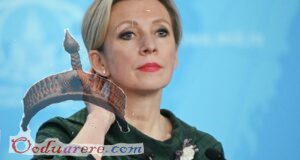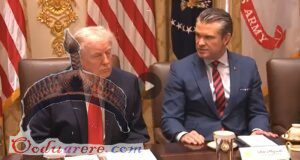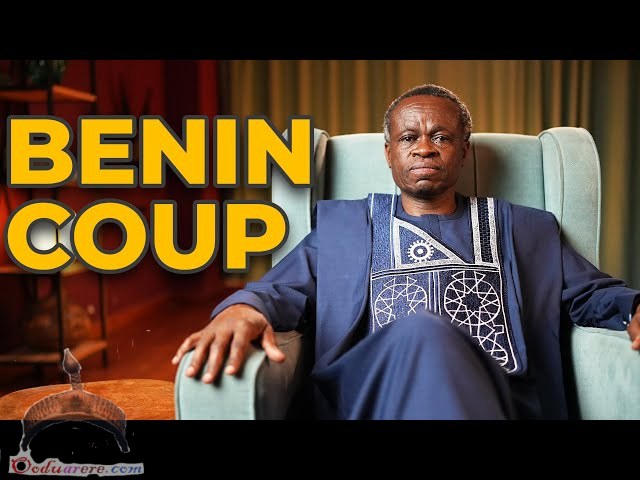by Naresh Jotwani
Not many will dispute that ‘freedom’ is one of the more popular words in English language today — in spite of the fact that, as we shall see, this word does not even have a well-defined meaning.
Despite lacking a clear meaning, the idea of ‘freedom’ is much loved the world over. Would any human being ever choose ‘not being free’ over ‘being free’? That is unimaginable. And yet human beings may put up with lost ‘freedom’ today, with the promise of ‘greater freedom’ tomorrow.
In its literal meaning, the Indian word closest to ‘freedom’ is mukti. Knowing this does not help much, however, because the major Indian viewpoints prevalent today do not provide a clear definition of the word mukti either.
So we are left with no choice but to apply a bit of logical analysis to the word.
Clearly ‘freedom’ means ‘the state of being free’; but it is the latter which does not have a well-defined meaning. In fact, a moment’s reflection leads one to the conclusion that the word ‘free’ cannot have a meaning which is independent of its context. By way of contrast, we may consider simple words such as ‘air’, ‘water’ or ‘river’, each of which has a well-defined meaning independent of its context.
The word ‘freedom’ is definitely not in the category of such simple words.
Suppose a person says, ‘I want to be free!’ Then the natural question which arises immediately in the mind of the listener is, ‘Free from what, my friend?’
Is the person talking about freedom from hunger, from debt, from disease, from addiction, from corruption, from confusion, from stress … ? Which one is it? Indeed, is it freedom from ‘all of the above’ — or perhaps even freedom from ‘any conceivable form of lack of freedom’?
In a purely literal sense, therefore, and unless the context supplies a clear meaning, any expressed desire for ‘freedom’ has no well-defined meaning!
During India’s Freedom Movement, the prevailing political and social context provided the clear meaning that ‘Freedom’ meant ‘freedom from British rule’. Even during that period, the simple-minded amongst Indians might have dreamt that ‘freedom from foreign rule’ would also bring with it ‘freedom from hunger, disease, debt, addiction, corruption … et cetera’.
However, without any doubt, even during that time of patriotic fervour, there would also have been the cunning in India — and there are many! — who would think, ‘Freedom means that we make all the money rather than the British’ or ‘We have all the power rather than the British’.
There is no question, therefore, that the word ‘freedom’ has a context-dependent meaning.
Indeed a poet may wish to be ‘free as the bird’. But how do we know that the birds are really free? Are the birds free from the cycle of birth and death? From hunger and thirst? From having to care for their young? From being preyed upon by other animals?
To the poet, a chirping bird seems happy and free only because of an outward projection of the poet’s own longing for happiness. But, as we have seen, the poet’s own longing is necessarily rooted in the poet’s own life. The longing does not ‘fall from the heavens’; neither is it a ‘gift from god’.
When another person reads the poem, the word ‘free’ would have a different meaning for that person, depending necessarily on the specifics of the person’s own life.
‘Freedom from want’ is often rightly stated as a desirable goal of any well-governed society. In this context, the words have the well-defined meaning that members of the society should not want for food, water, shelter, education, health and justice — that is, the basic necessities of human life.
But when ‘rampant consumerism’ becomes the ruling mantra of a society, ‘freedom from want’ may also be taken to mean ‘unlimited supply of all possible consumer goods and services’ — which is in reality no more than an unattainable mirage.
No matter how we examine the word ‘freedom’, therefore, we are left with some unanswered and indeed seemingly unanswerable questions.
But we have not yet explored one other possible avenue which may lead to ‘the true meaning of freedom’. In India, over the last few millennia, many seers and sages have given deep thought to this question, and their answers are definitely worth considering.
‘Freedom from the cycle of life and death’ is one common way to express this particular mode of freedom. Every human life is necessarily bracketed between life and death. Therefore this particular mode of freedom, if it exists, would have a meaning which applies to every human being — regardless of specific historic, geographic or social circumstances. But there is a definite lack of clarity in the words ‘freedom from the cycle of life and death’. After all, we — stuck in the midst of that cycle — cannot even begin to imagine what that freedom would be, and which specific benefits it would bring.
Gautam Buddha’s deep analysis led him to list dukkha, or dissatisfaction, as the first of the ‘four noble truths’ of human life. Suppose we follow up logically on this profound observation. We then see that all the previous unsatisfactory meanings of ‘freedom’ resolve or merge themselves into one.
What is the one simple and clear meaning that we now find?
Buddha’s clear and profound insight was to see ‘freedom’ in its truest essence as ‘freedom from any dukkha or dissatisfaction’.
Depending on a person’s specific circumstances of life, dukkha may take the form of hunger, debt, disease, divorce, ungrateful children, neglect, loss of power or wealth, addiction, loss of dignity, having to kowtow to a foreigner … and so on. Every person wants freedom from the specific dukkha in his or her own life. No human life is totally free from problems. The longing to be free from such problems is the ‘longing for freedom’ that is the common human experience.
This is indeed a great unifying thread of experience common to all human beings.
Alas! There is also a dark side to this simple and unifying definition — and one which is particularly applicable to the modern age of mass propaganda.
An ugly fact of life is that any human longing can be exploited by the cunning. For example, exploitation of hunger results in bonded labour, child labour, debt traps and so on. The natural human longing for good health can give rise to exploitative or even sham health care systems.
So the question arises: Can the longing for freedom also be exploited?
Unfortunately, yes.
One blatant form of this exploitation lies in the incitement of people against their own governments in the name of ill-defined ‘freedom’. Cunning cabals — usually secret — can and do incite masses of people to rise against their own governments in the name of ‘freedom’.
Of course no government is perfect, just as no human being is perfect. But the key point is that the incitement to ‘freedom’ is carried out with ulterior and malevolent motives. Masses are used as pawns — or rather as one big pawn — in the political games of the cunning. The aim of the cunning cabals is, quite simply, ruthless economic exploitation. An outward show of benevolence is of course made, since no masses will rise if the true goal of ruthless economic exploitation was known to them.
Another politically crooked version of ‘freedom’ is the modern ideology of ‘free markets’ — which has come to mean ‘unrestricted rights to exploit nature as well as human societies’. This ideology is sugar-coated and marketed with an attendant and totally false ‘pie in the sky’ promise of ‘one day everyone will be happy’ — which is like saying ‘one day everyone will be in paradise’.
Needless to say, the two politically crooked versions of ‘freedom’ outlined here invariably go ‘hand-in-glove’ — since they share the goal of unrestricted exploitation of nature and of human societies.
***
We see that our quick tour of the possible meanings of the fascinating word ‘freedom’ has thrown up one very clear meaning — and any number of either unsatisfying or downright crooked meanings.
Unsatisfying meanings of ‘freedom’ are provided by honest individuals who are under an acute and specific form of ‘lack of freedom’. After all, ‘freedom’ to a hungry man would and should mean only one thing: freedom from hunger. As they say, you cannot teach a hungry man philosophy. Similarly, ‘freedom’ to a harassed spouse would have a different specific and genuine meaning.
Downright crooked meanings of ‘freedom’ are propagated and exploited by the cunning for their own hidden economic and political goals, which usually go together.
The meaning of ‘freedom’ which satisfies the need for total clarity — for there is also such a human need! — is the one provided by Gautam Buddha.
While Buddha’s is certainly a unifying and illuminating definition, further immensely fruitful exploration is still possible of that profound meaning of ‘freedom’. So we must move on.
In human history, the development of language and thought has occurred in several different regions and cultures, which are often referred to as ‘cradles of civilization’. Certainly great sages and saints in regions other than India have also reflected deeply on the meaning of ‘freedom’, and suffering of one kind or another has been associated with ‘lack of freedom’.
Several cultures have in fact opted to ‘kick the can down the road’, in a manner of speaking, by hypothesizing the existence of a ‘paradise’ or a ‘promised land’. Belief in ‘paradise’ or ‘promised land’ may indeed make it possible for people to bear with the vicissitudes of life — dukkha — without posing difficult or inconvenient questions to their ‘tribal elders’. Such belief systems, requiring unquestioned allegiance, do of course serve a social and political purpose. But obviously such belief systems cannot provide an answer to the question to which we have focused our attention.
Jesus Christ has made a profound observation on this topic: ‘You shall know the truth, and the truth shall make you free’. To draw a clear parallel, Buddha has showed a path, the noble eight-fold path, to guide a person towards realization of the truth — and thereby freedom from suffering.
The names of Jesus Christ and Gautam Buddha are associated with two great religions of the world. But of course the truth of existence is one and indivisible. Therefore there can be no doubt whatsoever that these two remarkable men, in their two inimitable ways, were both referring to the one undeniable reality of human longing for freedom from suffering. If one of them used an Aramaic word which we today translate as ‘love’, the other used a Pali word which we today translate as ‘compassion’.
In this context, a famous statement of the Sufi sage Jalaluddin Rumi can also be cited: ‘Love is the astrolabe to the mysteries of the universe’.
Alexander Solzhenitsyn, a sage of more recent times, wrote that he found freedom once he was jailed, because in jail there was nothing to lose. In jail —under severe physical restraints, while others might have turned bitter — Solzhenitsyn freed himself of the fear of losing the good things in life.
We cannot doubt that loss of fear is also a form of ‘freedom’, because fear is a form of dukkha.
A message often seen on the backs of trucks plying on the roads in India is, in rough translation from Hindi: ‘Think deeply about what will go with you’. The clear hint in the message is to ‘the hereafter’ — and to the need to free oneself from attachment to material possessions.
Indeed, the question of ‘freedom’ is very closely linked to that of ‘attachment’.
Suppose a person is ‘attached’ or ‘strongly attached’ to someone or something, say X. Then the clear psychological meaning of the statement is this: ‘The person is incapable of even contemplating life without X’. Or, quite simply, the person ‘cannot do without X’. That is surely a lack of freedom, because one possible mode of life — that is, life without X — is thereby closed to the person.
Given that anything can happen in life, it certainly seems unwise that the person is totally unprepared for the eventuality of ‘life without X’. Gautam Buddha listed anitya, or the ‘impermanence of all things’, as a fundamental attribute of life. It is then irrational for the person to exclude the possibility of having to live without X, whereas freedom from suffering requires a rational approach to all aspects of life.
Ascetics presumably wish to free themselves from the need for material possessions and comforts. Insofar as they attain the freedom sought, of course their asceticism has served its true and noble purpose. But asceticism as an end in itself becomes an attachment — with only a superficial ‘display’ or ‘circus’ value — and then we must conclude that the ascetic in question is not really free.
Being able to sleep on a bed of nails, in other words, does not necessarily indicate a state of being free. The person who can sleep on a bed of nails should also be equally at peace on a luxury four-poster!
We have already noted that the longing for freedom can be exploited by the politically cunning. The following typical example of ‘political freedom’ is often in the news nowadays:
A person wishes to denounce, using a megaphone right in the centre of the capital city, the political head of a country. Does the person have a fundamental right to that kind of ‘political freedom’?
The answer to that question cannot be given without conceding that denouncing the political head of a country is much easier than carrying the responsibility for the complex set of situations facing a country. Usually the denouncers have no capability or experience of carrying a heavy responsibility. There can even be doubts as to the integrity of a denouncer, since exchange of money can also play a role.
So should the ‘political freedom’ in question be available as a fundamental right?
If the general population of a country is not well-educated, and therefore if it is susceptible to the ill effects of inflammatory speeches and unable to discern the underlying truth, then unrestricted political freedom may well create more problems instead of solving existing ones.
But then are we not condemning that person — the wannabe denouncer — to a pitiful state of lack of freedom? Is that not cruel and unusual punishment? Does that not go against what Buddha, Christ, Jalaluddin Rumi and Solzhenitsyn have taught?
Not really.
The person in question needs to first become free from the illusion that denunciations shouted out from the centre of the capital city would achieve anything constructive. If the person also suffers from an unhealthy desire to gain ‘fifteen seconds of fame’ in front of cameras, the person needs to understand that such a desire cannot bring about lasting happiness — even if it is satisfied momentarily.
The person demanding ‘freedom to shout’ in fact needs freedom from illusion and unhealthy desire. Giving unrestricted freedom to such unwise persons cannot bring about any benefits in society. On the contrary, such persons fall into the hands of cunning cabals exploiting the longing for freedom.
The person needs to gain freedom through inborn wisdom, enlightenment, truth. This is the freedom which will bring the person durable happiness and peace of mind — ‘peace that passeth understanding’. This freedom is internal. There is little that ‘political authorities’ can do to take it away; indeed they may not even wish to take it away, since a wise person is an asset to society and not a threat to power.
A person at peace does not have any use for ‘political power’. Indeed, competing ruthlessly for ‘political power’ is not even the best way to address the genuine needs of a society.
Another typical example relevant to the times we live in:
Consider an immensely wealthy and powerful person, who has the ‘freedom’ to buy and to sell, to hire and to fire, to bribe and to conspire, to marry and to divorce — and much more besides which cannot be mentioned in decent company. Clearly, such a person has immense capacity to influence society.
Surely such a person must be judged to be ‘freer than most others’, right?
Wrong. If the person’s immense capacity to influence society is not being put to use for a greater good, then the person cannot be judged to be ‘free’.
Why is that?
The argument runs like this. We have posited ‘freedom’ as ‘freedom from suffering’. So ‘freedom’ has immense positive value; it is something worth aspiring and striving for — and therefore also allowing to others. This is no more than the basic principle of reciprocity in human interactions.
So if a wealthy and powerful person has indeed found ‘freedom’, then why is that person’s overall impact on society not positive? Surely, the presence of a veritable ‘repository of freedom’ in a society should result in ‘freedom’ being witnessed all around! Sadly, however, only a kind of ‘police state’ prevails around the powerful and the wealthy, without a trace of freedom and benevolence.
The absence of ‘freedom’ all around proves the absence of ‘freedom’ at the core. If a wealthy and powerful person was indeed free, the good effects thereof would be seen all around in society. We may even recall in this context the way in which Jesus Christ compared wealthy men and camels.
It is quite simple, really. Rich or poor, black or white, tall or short, smart or dumb — a person who is driven by internal compulsions is not ‘free’. A compulsion is a lack of freedom!
[Modern day economists, who seem to consider themselves the greatest of all sages in human history, seem to have only one metric for the well-being of a society – namely, ‘money’. It takes the examples of only one wretched wealthy man and only one happy poor man to understand that human well-being cannot be measured using the single metric of money.]***
Sadly, much of today’s geopolitics is being played out in the name of ‘freedom’. In earlier periods of history, wars between tribes or nations were fought openly for wealth, resources or territory. There was evidently no necessity of dressing up wars using labels such as ‘freedom’ and ‘civilization’.
Times are different now. Education and communication have enhanced many-fold the awareness of multitudes of common people on every side of an actual or imminent war. Therefore the politically cunning are today obliged to dress up their dark and rapacious designs using soft words such as ‘freedom’ and ‘democracy’, or ominous phrases such as ‘threat to freedom and democracy’.
At such a hugely critical juncture in human history, we hope that a fuller and deeper understanding of the true meaning of ‘freedom’ — defined in terms of the actual, experienced reality of an individual human life — will prove to be beneficial to those who make an effort to understand.
 Ọmọ Oòduà Naija Gist | News From Nigeria | Entertainment gist Nigeria|Networking|News.. Visit for Nigeria breaking news , Nigerian Movies , Naija music , Jobs In Nigeria , Naija News , Nollywood, Gist and more
Ọmọ Oòduà Naija Gist | News From Nigeria | Entertainment gist Nigeria|Networking|News.. Visit for Nigeria breaking news , Nigerian Movies , Naija music , Jobs In Nigeria , Naija News , Nollywood, Gist and more









